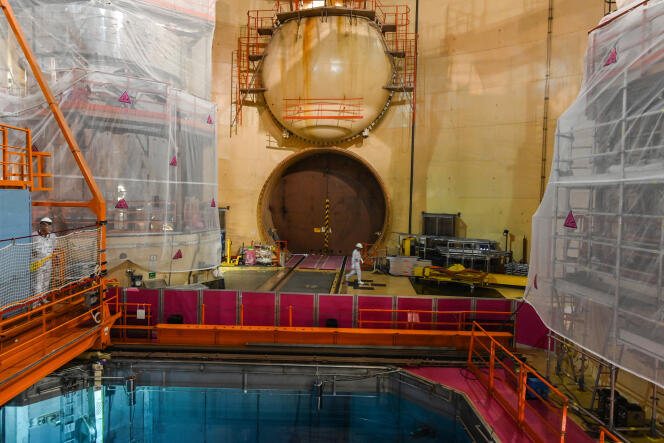


This is a first for the French nuclear industry. In a decision made public on August 10, the French nuclear safety authority (ASN) has authorized the number one reactor at the Tricastin power plant in Drôme (Southeast France), to operate for up to 50 years. This announcement comes at a time when the question of the lifespan of power plants is crucial to the country's energy future. To meet the growing need for low-carbon electricity over the coming decades, the French government wants to extend all reactors, wherever possible, "to 60 years and beyond."
The ASN's opinion, communicated in mid-summer but issued as early as June 29, completes the very long process of enabling the life of the oldest reactors in the fleet – specifically, 32 separate 900-megawatt (MW) reactors – to be extended beyond 40 years. In February 2021, the ASN paved the way for this extension with a decision, which must be confirmed by a re-examination of each reactor, taking into account its specific features. Commissioned in 1980, Tricastin's number one reactor is the first to complete this in-depth review, known as the "fourth ten-yearly visit" (VD4), in 2019.
"The ASN can only issue a definitive opinion once examinations have been carried out on each reactor. EDF has submitted a report of conclusions and a public inquiry has been held, which took place at the beginning of 2022 for the Tricastin number one reactor," explained Yves Guannel, head of the aggression and safety review office in the ASN's nuclear power plant division. "The whole process has been completed for reactor one at Tricastin, and will continue in the same way for the other reactors."
"The 40-year review process involves two complementary key stages, a generic phase common to all reactors of the same type, and a phase specific to each reactor, integrating local particularities such as the levels of aggression to be taken into account, or the cooling source," added EDF, which operates the 56 reactors in the fleet. "The ASN's decision on Tricastin one brings these two phases to a close."
Although French regulations do not stipulate a maximum lifespan for reactors, an assumption of 40 years of operation was made at the time of design. Every ten years, reactors undergo an in-depth review, with a view to obtaining authorization to operate for a further decade. For the fourth ten-yearly inspection, the aim was to ensure that the 32 reactors commissioned between 1978 and 1987 reached the same safety level as the most recent reactor, the Flamanville EPR, scheduled to launch in 2024.
You have 42.83% of this article left to read. The rest is for subscribers only.
